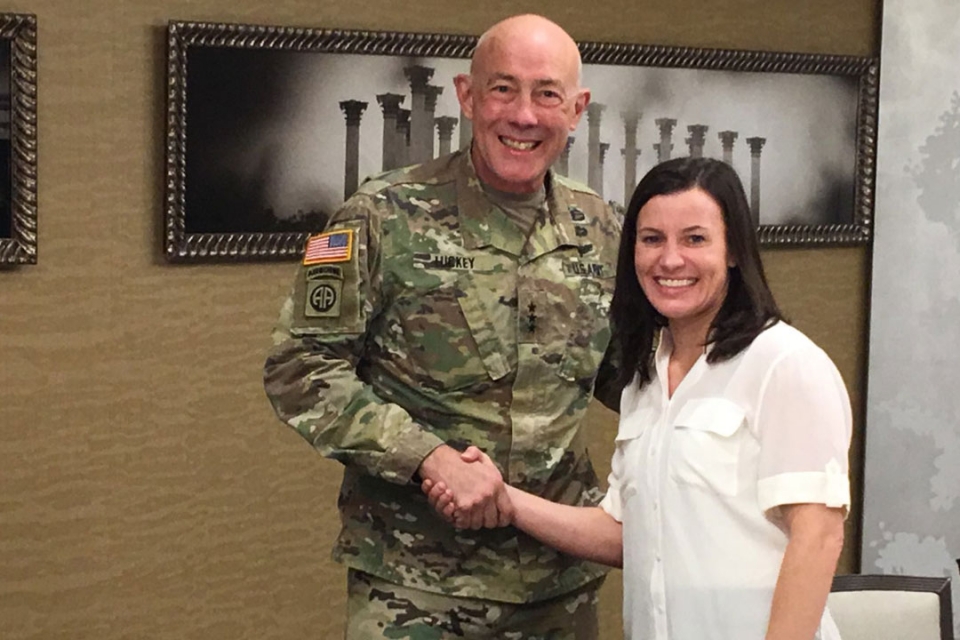
Back in 1908, when the Army Reserves were formed, doctors were the first recruits.
Medicine remains a key expertise, but Lieutenant General Charles Luckey, Chief of Army Reserve and Commanding General U.S. Army Reserve Command, said he now looks for a wide range of skills and experience in recruits, from rail and pipeline shipment of petroleum, to digital engineering and quantum computing.
Speaking at a Defense Writers Group (DWG) breakfast conversation event on Jan. 24, Lieutenant General Luckey took questions from journalists about the priorities and future of the Army Reserves. The DWG breakfast series is run by the Project for Media and National Security at GW's School of Media and Public Affairs.
When asked about Army fitness standards and the obesity problem in this country, Lieutenant General Luckey estimated that as many as 70 percent of young Americans 18 – 23 may not be eligible to enlist. This led to questions as to whether the Army should relax its physical fitness standards to recruit more members with medical or computing skills.
Luckey says relaxing "grooming standards" for certain skill groups is "on the table" but when it comes to keeping in shape, "I don't want to tinker around with it." Soldiers, he said, need to be "physically and mentally tough."
Whatever their specialty, reserve soldiers can find themselves deployed in war zones under attack and "you've got to be ready, if necessary to kill the enemy in combat."
Major Emily Pengelly, a master’s candidate in GW’s Anatomical and Translational Sciences program and a major in the U.S. Army Reserves was invited to attend the DWG event. Major Pengelly served in the Army from as a physician’s assistant from 2003 – 2015, including a tour in Wiesbaden, Germany.
Upon graduation in May, she is considering attending medical school or working at a U.S. embassy. General Luckey urged her to become a doctor and said the Army would be happy to help pay for medical school.


